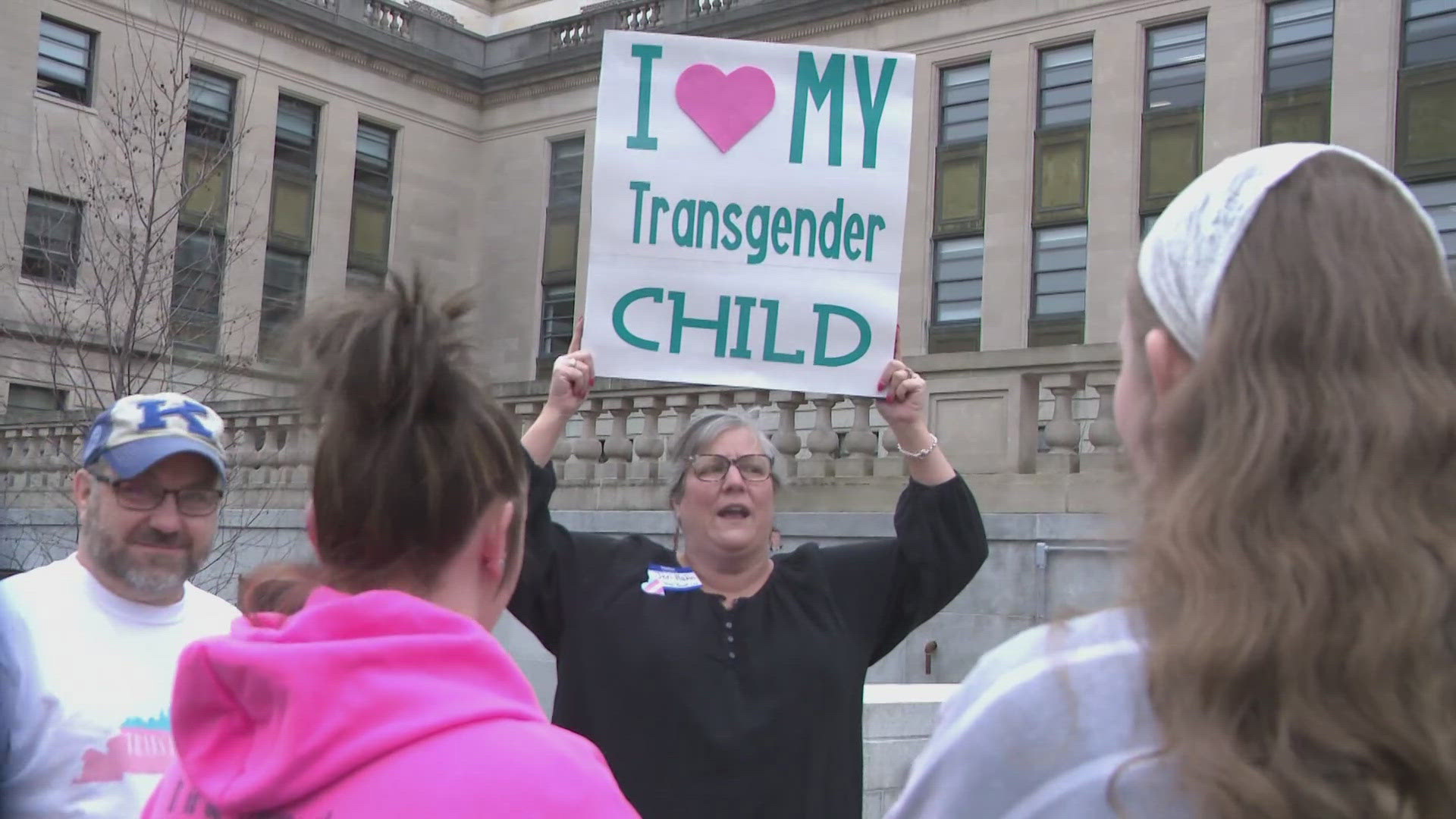![drugs[ID=4276517] ID=4276517](http://www.gannett-cdn.com/-mm-/3d5569507733ca056af5edaf0a2a8036c559fb13/r=500x375/local/-/media/WBIR/WBIR/2014/01/01/1388583163003-drugs.jpg) Physicians and drug policy groups are sharply at odds over President Obama's statement to a magazine that marijuana is no more dangerous than alcohol "in terms of its impact on the individual consumer."
Physicians and drug policy groups are sharply at odds over President Obama's statement to a magazine that marijuana is no more dangerous than alcohol "in terms of its impact on the individual consumer."
Obama's interview with The New Yorker magazine will appear Jan. 27. In it he said that while he considers marijuana "a bad habit and a vice," a waste of time and not very healthy, he doesn't think it's more dangerous than alcohol.
The issue is in the news as two states, Colorado and Washington, begin experiments with the legal sale of recreational marijuana this year. Both passed laws legalizing its recreational use on Nov. 6, 2012.
The president is obviously "not familiar with the science and frankly doesn't know what he's talking about," said Stuart Gitlow. He directs the Annenberg Physician Training Program in Addictive Disease at Mt. Sinai School of Medicine in New York City.
"There's no benefit to marijuana," said Gitlow. "It's simply that people want the freedom to be stoned. That's all it is. And there's a great deal of risk."
The two drugs have very different side effects, different long-term effects and different contributions to illness and death in the general population. "I would never try to compare and contrast them on something as absurd as 'dangerousness,' " he said.
Many physicians disagree. "That's a good start from the president but it's still misinformed," said Donald Abrams, chief of oncology at San Francisco General Hospital.
"In my 37 years as a physician, the number of patients I've admitted to the hospital with complications from marijuana use is zero. The number I've admitted due to alcohol use is profound," he said.
A frequent argument is that marijuana is safer because users "don't drop dead immediately, while you can overdose and die from ingesting alcohol," said Gitlow. But "nobody dies immediately from smoking cigarettes, either," he said. That doesn't make them any less dangerous.
Gitlow worries most about marijuana's effect on youth, as well as the overall lack of knowledge about its dangers. "In terms of morbidity and mortality, we're with marijuana right now where we were with tobacco back in the 1910s and 1920s."
"All the medical associations agree that there needs to be research and that we need to know what component of the drug does that," he said.
Marijuana advocates cite multiple studies they say have found marijuana to be safe.
Mason Tvert, communications director for the Marijuana Policy Project in Washington D.C., points to a World Health Organization study on the health and societal consequences of marijuana compared with alcohol, nicotine and opiates.
The report found that the risks associated with marijuana are small to moderate in size and that it is less likely to produce public health problems on the scale of those caused by alcohol and tobacco.
Alcohol is more of a social problem because it makes some people belligerent and dangerous. "Everyone knows that person who has a few drinks and gets out of control and hurts themselves or others. When people think of marijuana users, they think of someone who is a little mellower and not causing serious problems," said Tvert.
Gitlow cites studies showing marijuana use can cause loss of productivity and, in heavy users, lowered IQs. In about 1% of heavy users it can induce psychosis, he said.
"These kinds of difficulties are being completely overlooked in America's rush to have another addictive drug made available," Gitlow said.
Advocates point to evidence showing no causal relationship between marijuana use and the onset of mental health conditions. If marijuana causes psychosis, then rates of psychosis should rise if marijuana use goes up, noted Tvert. That has not happened.
Many act as if once marijuana is legal people will stop drinking alcohol but it's not an either/or situation, Gitlow said. "I suspect that in reality we'll end up with a bunch of people who are simultaneously drunk and high. It's not like kids will go to a party and say, 'I won't have a beer, I'm going to get high tonight.' "
There is clear evidence "that marijuana is objectively less harmful than alcohol," said Tvert.
"For decades, our government has been exaggerating the harms of marijuana in order to keep it illegal," he said. "The Institutes of Medicine determined that the addictive properties of marijuana are quite mild compared to those of alcohol."
To Gitlow's mind, there's no good reason to add marijuana to the mix of drugs available. "I'm still puzzled why people are rushing headlong into the legalization of a drug that has no advantage."
Abrams, an oncologist, disagrees. He spends much of his day discussing the medical use of cannabis with cancer patients. He frequently prescribes marijuana, which is legal for medical use in California, to decrease nausea, increase appetite, decrease pain and depression and aid sleep.
"I never recommend alcohol to patients as a treatment for anything," he said.


